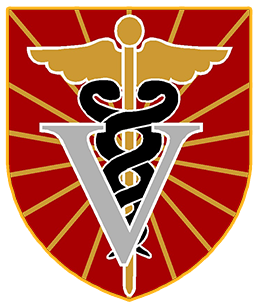Vision
Mission
The premier veterinary institution in the Asia Pacific recognized for producing world-class and service-oriented veterinary professionals.
To provide quality education to veterinary students and professionals in order to support national and global animal health, production and welfare, and safeguard public health.
Goals
To realize its vision, CVM has the following goals:
- To offer undergraduate and graduate programs relevant to Philippine and Asian concerns;
- To provide the highest quality of instruction in veterinary medical science;
- To undertake research in various fields of veterinary medicine, including animal production and veterinary public health;
- To participate in multidisciplinary activities for promotion and enhancement of biomedical and agricultural sectors; and
- To provide client-oriented veterinary services in urban and rural areas.
Objectives
To realize its vision, CVM plans to:
- Produce highly competent general practitioners, through the DVM program;
- Produce specialists in various fields of veterinary medicine, through the MS program;
- Conduct studies that will lead to generation of new information and/or discovery of new technologies in veterinary medicine and allied fields;
- Establish linkages with local, national and foreign government, non-government and private organizations/institutions for teaching, research and extension collaborations;
- Cooperate with government and private entities in the delivery of veterinary services to the various sectors of society especially the marginalized and rural populations.
Three-fold Function
CVM adopts the three-fold function of instruction, research and extension.
For instruction, CVM develops and implements relevant undergraduate and graduate programs to produce internationally-competitive veterinarians who will play leadership roles in accelerating the modernization of veterinary services towards sustainable development in the Philippines.
For research, CVM undertakes research and developmental activities that focus on fields or areas where limited researchers are being made in order to incorporate indigenous technology and modern science to achieve global competitiveness in veterinary science and animal production.
For extension, CVM assists the government in its effort of introducing appropriate technology to the Filipinos, empowering our agricultural workers to be more effective and efficient producers through innovative approaches and promoting public health.
UP's Philosophy of Education
A UP education is liberal, developing breadth of mind and an attitude of inquiry; nationalist, fostering a commitment to the freedom and welfare of Filipinos and the Filipino nation; and transformative, enabling students to change themselves and contribute to improving their communities, the nation, and the world based on a strong sense of their cultural and historical identity as well as a sense of a shared humanity.
Through a combination of courses in the liberal arts, which comprise the General Education curriculum, and specialist courses in each student’s chosen field of study, students are imbued with the University’s core values of honor (dangal) and excellence (husay at galing).
The curriculum is designed to expose students to various theories and paradigms both within and across disciplines, and a learner-centered pedagogy is implemented to:
- Develop autonomy and critical thinking through discussion and debate;
- Foster an awareness of the relationship between personal experience and social structures through historical analysis and sociological studies;
- Cultivate a sense of social responsibility and accountability through immersion and service learning activities;
- Promote cultural sensitivity and environmental stewardship through field work; and
- Hone innovativeness and problem solving skills through mentored research and capstone projects.
UP Graduate Attributes
UP's Institutional Vision
The University of the Philippines (UP) as a leading regional and global university in an environment that sustains 21st century learning, knowledge creation, and public service for society and humanity
UP's Mission
As the national university, UP is mandated to perform its unique and distinctive leadership in higher education and development. It shall:
- Lead in setting academic standards and initiating innovation in teaching, research and faculty development in philosophy, the arts and humanities, the social sciences, engineering, natural sciences, mathematics, and technology; and maintain centers of excellence in these disciplines and professions;
- Serve as a graduate university providing advanced studies and specialization for scholars, scientists, artists, and professionals especially those who serve on the faculty of state and private colleges and universities;
- Serve as a research university in various fields of expertise and specialization by conducting basic and applied research, promoting research and development, and contributing to the dissemination and application of knowledge;
- Lead as a public service university by providing various forms of community, public, and volunteer service, as well as scholarly and technical assistance to the government, the private sector, and civil society while maintaining its standards of excellence;
- Protect and promote the professional and economic rights and welfare of its academic and non-academic personnel;
- Provide opportunities in training and learning in leadership, responsible citizenship, and the development of democratic values, institutions, and practice through academic and non-academic programs, including sports and the enhancement of nationalism and national identity:
- Serve as a regional and global university in the Asia Pacific region and around the world in cooperation with international and scientific unions, networks of universities, scholarly and professional associations i n the Asia-Pacific region and around the world; and
- Provide democratic governance in the University based on collegiality, representation, accountability, transparency and active participation of its constituents, and promote the holding of fora for students, faculty, research, extension and professional staff (FtEPS), staff, and alumni to discuss non- academic issues affecting the University.
